The Oppo Reno 12 Pro could topple the Google Pixel 8a as the best cheap AI phone
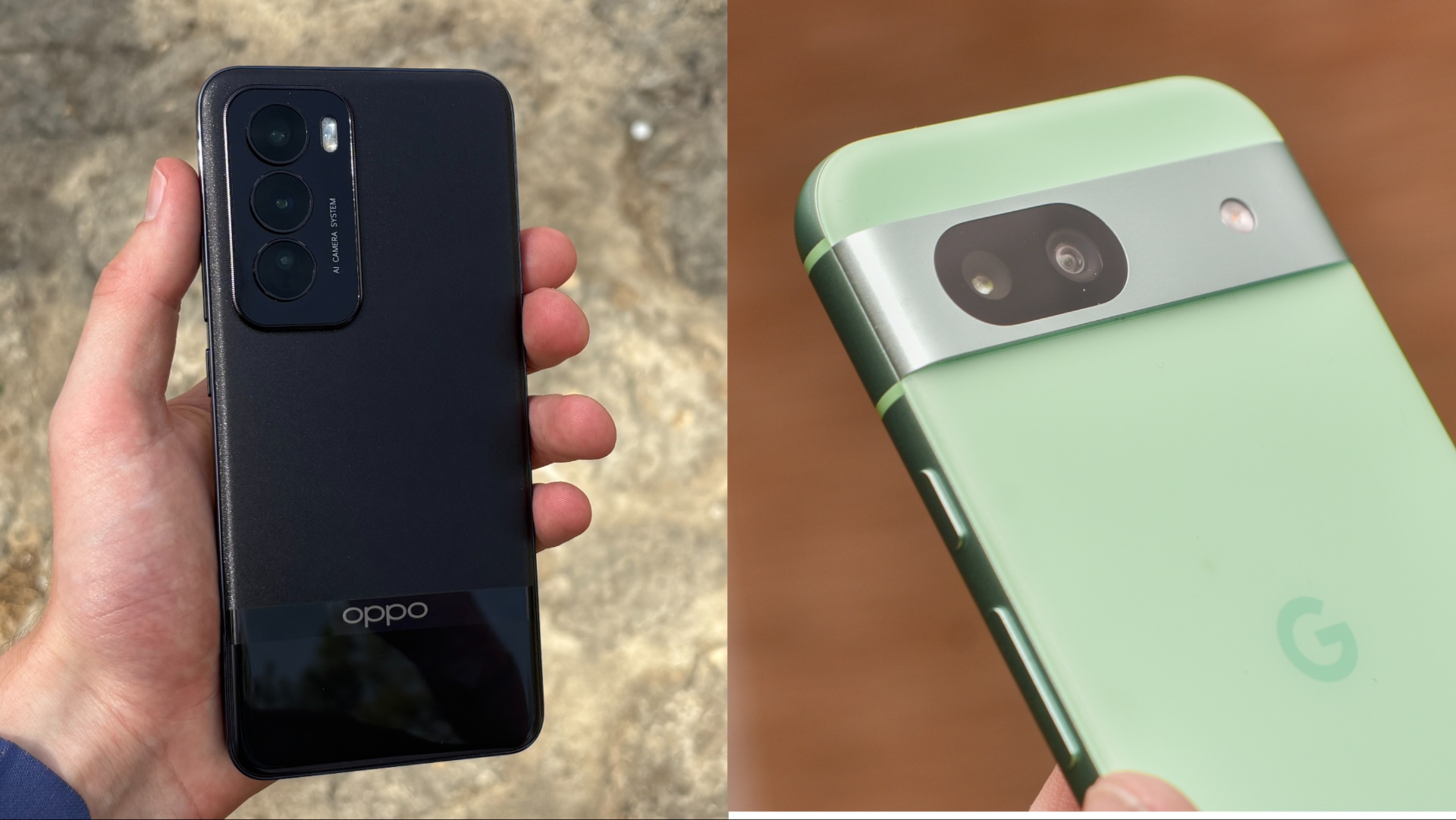
Sign up for breaking news, reviews, opinion, top tech deals, and more.
You are now subscribed
Your newsletter sign-up was successful
Our guide to the best AI phones has only existed for a matter of days, but Oppo will be hoping that its latest handset, the Oppo Reno 12 Pro 5G, can immediately boot the Google Pixel 8a off its perch as the best cheap AI phone of 2024.
Having been officially announced at Oppo’s inaugural A.Island event in Ibiza (get it?) on June 18, the Reno 12 Pro 5G offers an impressive suite of flagship-level generative AI features for the decidedly non-flagship price of £499 / AU$999. Sure, the Pixel 8a costs the same price in the UK (and $499 / AU$849 elsewhere), but the Reno 12 Pro 5G combines its AI smarts with some interesting design quirks that will surely dent the appeal of Google’s latest samey-looking (though undeniable impressive) Pixel phone.
For starters, the Reno 12 Pro 5G boasts what Oppo is describing as an Infinite View Screen – a 6.7-inch AMOLED display that ever-so-slightly wraps around the device on all four sides. This design supposedly merges the expanded views and rounded grip of a curved screen with the accurate touch recognition and durability of a flat screen. Having handled the Reno 12 Pro 5G for myself, I can confirm that the combination is subtle but effective (it's also great to see curved screens enduring in one way or another).
This Infinite View Screen is protected by Corning Gorilla Glass Victus 2, which is the same shield you’ll find adorning the Samsung Galaxy S24 and Samsung Galaxy S24 Plus. The Reno 12 Pro 5G offers IP65 dust and water resistance, too.
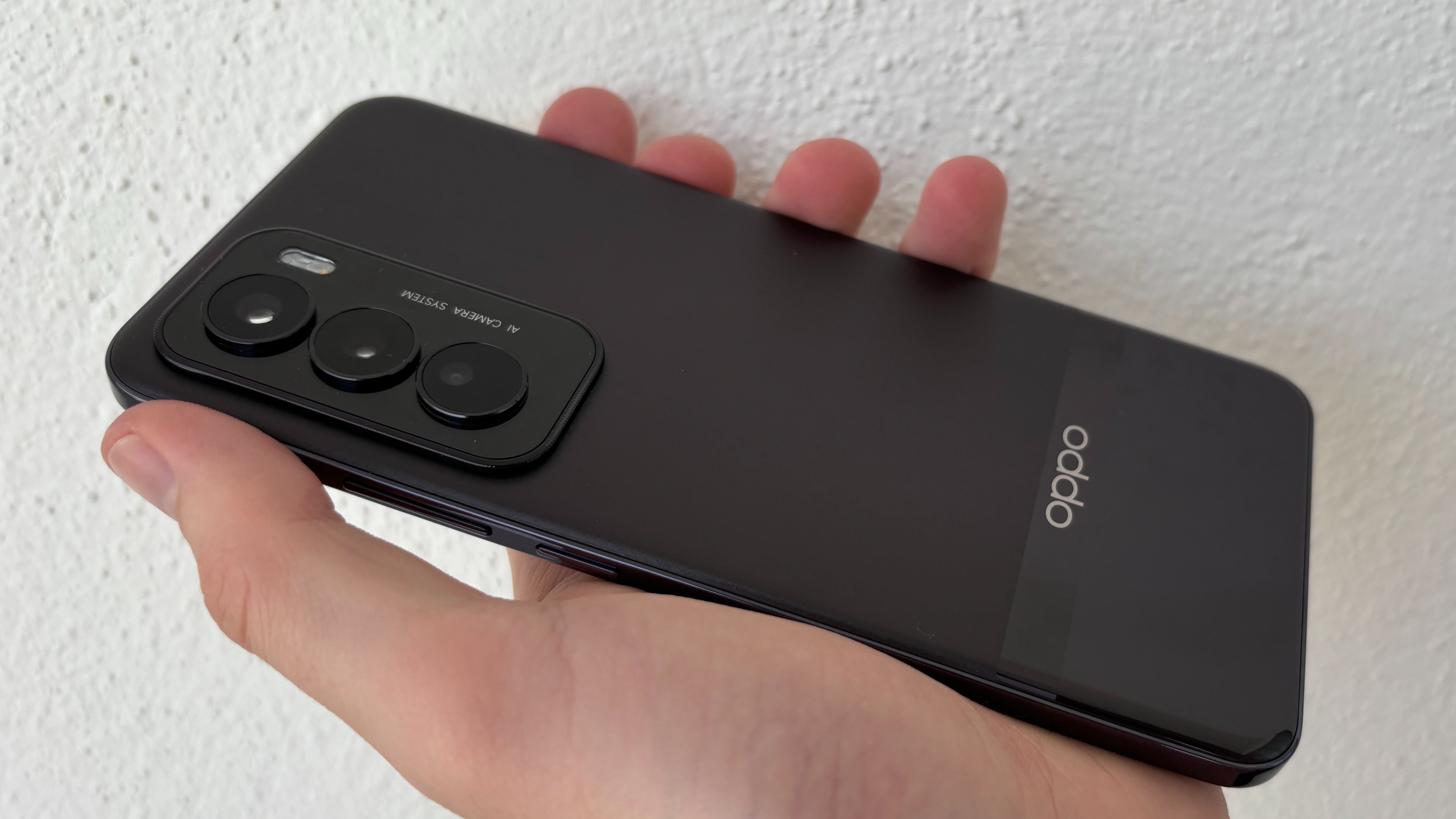
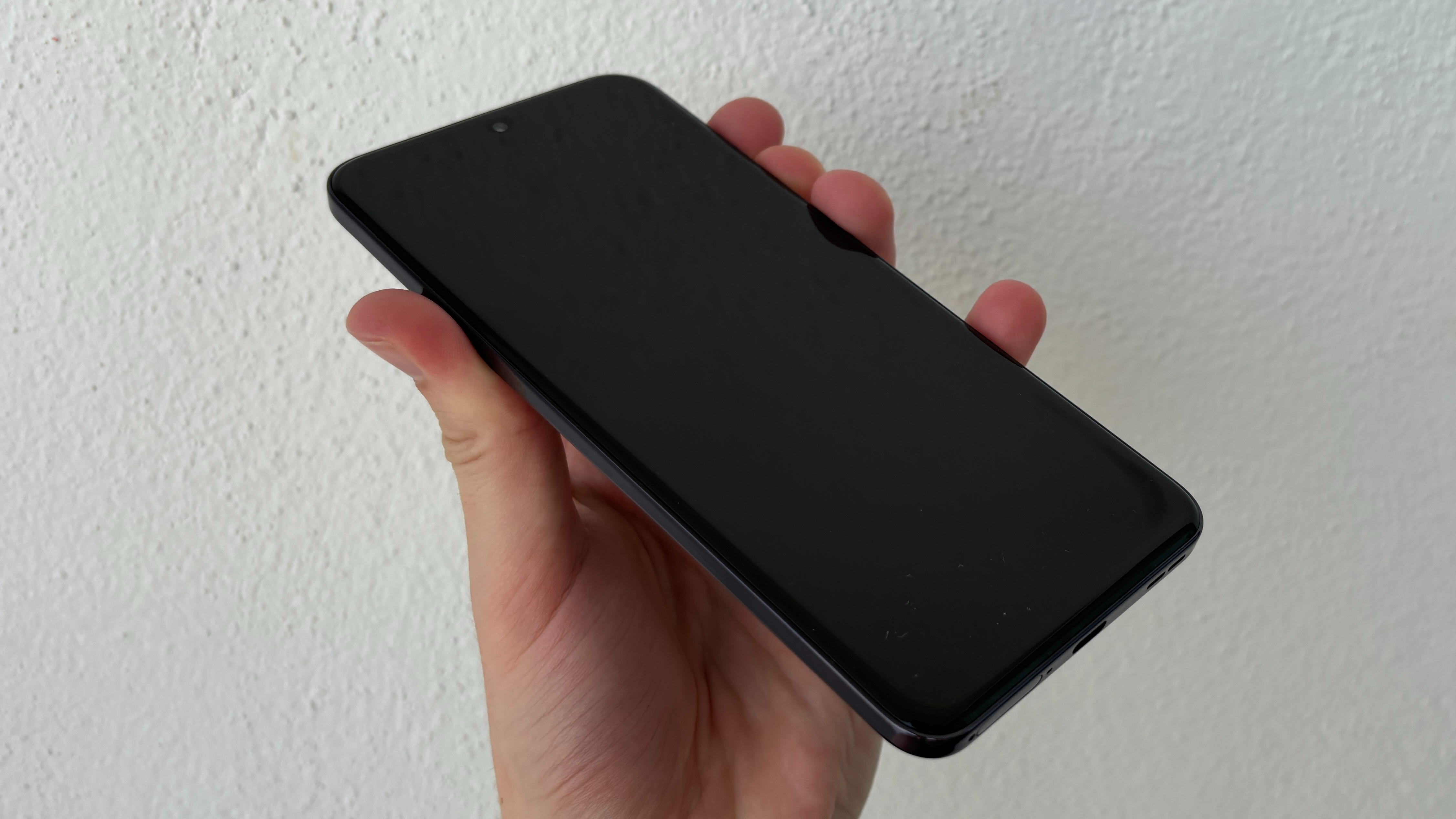
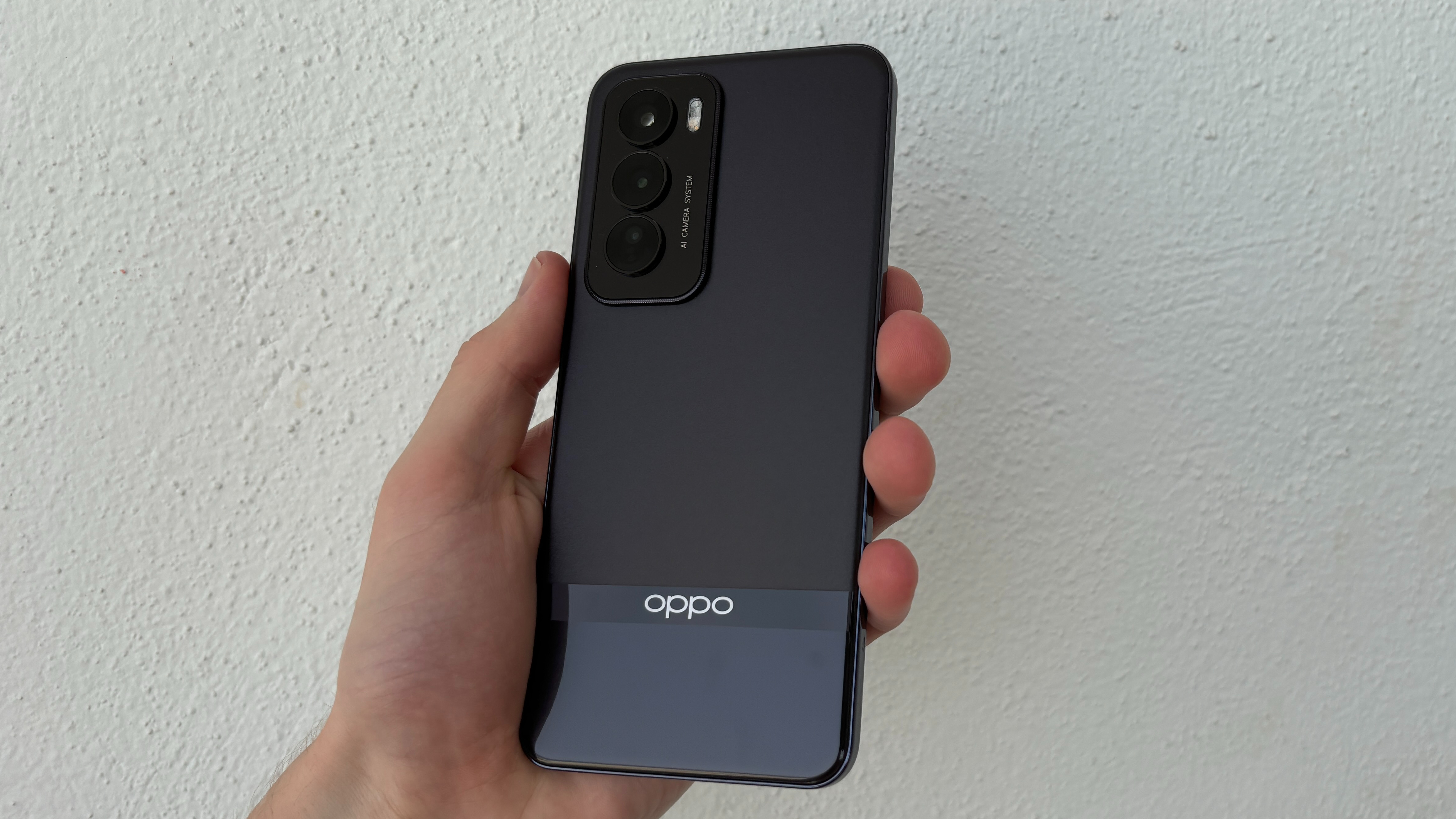
Other specs include a MediaTek Dimensity 7300 chipset, a 5,000mAh battery and four decent cameras – specifically a 50MP main, a 50MP telephoto (with 2x optical zoom), an 8MP ultra-wide and a 50MP selfie snapper. But the real interesting meat on the bone of the Reno 12 Pro 5G is its aforementioned AI capabilities.
AI for the people
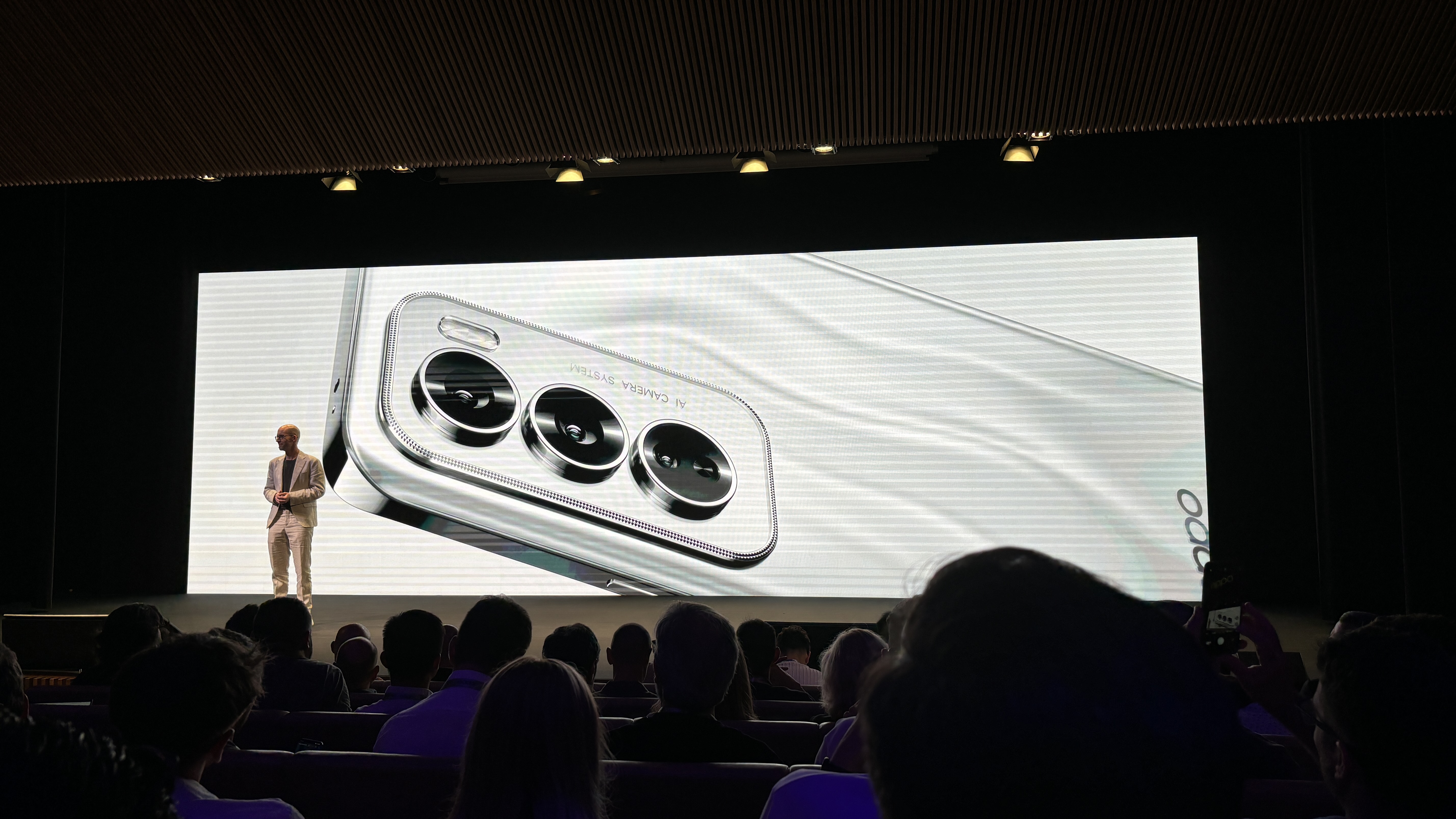
Earlier this month, Oppo announced plans to “democratize AI” by bringing generative AI features to its entire product line, and the Reno 12 Pro 5G represents the first beneficiary of that accessibility-first approach.
Leading the charge is a suite of photo-editing tools that aren’t a million miles away from those already offered by the likes of Google and Samsung. AI Eraser, for instance, lets you remove unwanted subjects and objects from photos with a simple tap – I recently took the feature for a spin on the Oppo Find X7 Ultra at the Champions League final – while AI Clear Face can automatically remove facial blemishes and add detail to facial features.
Sign up for breaking news, reviews, opinion, top tech deals, and more.
Similarly, AI Best Face can automatically identify closed eyes in photos and reopen them, while AI Studio lets you recompose photos with different artistic styles (think manga or cartoon filters) using generative AI.

For the more productive among us, the Oppo Reno 12 Pro 5G also offers a host of Google Gemini-based assistive features, like AI Write, AI Speak and AI Summary. These tools leverage Google’s large-language model to understand the content displayed on screen and recommend features that might be of use to you. Need to rephrase an important work email, or extract text summaries from a lengthy voice recording? The Reno 12 Pro 5G can step in to help you.
Again, it’s worth reiterating that Oppo is offering all of these features, subscription-free, for just £499. Of course, you’re not getting iPhone 15 Pro Max-level performance or Samsung Galaxy S24 Ultra-level camera credentials for that price, but as a means of accessing generative AI features without demanding that you break the bank, the Reno 12 Pro 5G looks like a home run.
We’re currently putting the Reno 12 Pro 5G through its paces, so stay tuned for our full review, but if you’re interested in pre-ordering Oppo’s latest AI handset, you can do so now from Oppo.com. The Reno 12 Pro 5G will begin shipping from June 28, 2024, though as with other Oppo phones, it won’t be available in the US.
You might also like...

Axel is TechRadar's Phones Editor, reporting on everything from the latest Apple developments to newest AI breakthroughs as part of the site's Mobile Computing vertical. Having previously written for publications including Esquire and FourFourTwo, Axel is well-versed in the applications of technology beyond the desktop, and his coverage extends from general reporting and analysis to in-depth interviews and opinion.
Axel studied for a degree in English Literature at the University of Warwick before joining TechRadar in 2020, where he earned an NCTJ qualification as part of the company’s inaugural digital training scheme.